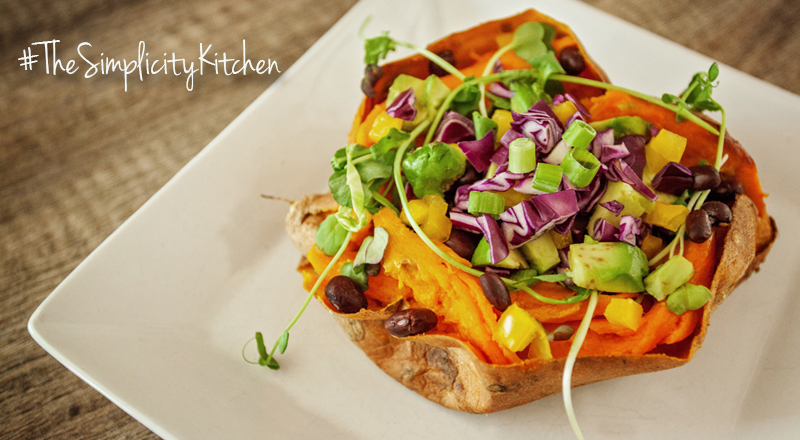Reduce Stress to Enhance Your Digestion and Metabolism

You’ve probably heard the old saying “You are what you eat” at least a thousand times. Every morsel is broken done into it’s smallest parts and becomes part of you. When you think of food in very simple terms like this — that it literally turns into you — then food takes on a whole new meaning doesn’t it? Do you want to turn into a bowl of white pasta and cream sauce or a bowl of vibrantly coloured vegetables with avocado and seeds? Hopefully the latter. Real food is so incredibly beautiful and fresh!
But let’s take it one step further….
You are also what you assimilate or absorb. No matter how nourishing your diet is, if your digestion is not on track then it’s possible that all your best intentions will not be reflected in your skin, energy levels, mental health and so on. Some of the main reasons that you may have digestion problems include (but are certainly not limited to):
- Stress – physical, emotional, mental
- Lack of good bacteria in the gut
- Improper food combining
- Years of an unhealthy lifestyle: alcohol, smoking, drugs, exposure to environment toxins
- Drinking too many caffeinated beverages
- Yo-yo dieting
- Abusing laxatives (herbal teas or over-the-counter meds)
- Lack of exercise
- Eating foods you are allergic/sensitive too, regardless if they are healthy for someone else
Let’s tackle one of these reasons that your gut is not on track: STRESS.
Ugh, stress rears it’s ugly head when you least want it to doesn’t it? Your stomach is literally your second brain. Yes! Your stomach is very intimately connected to your brain and your emotional state. What you manifest in your head, will immediately impact your gut health. When you are stressed and your body uses its sympathetic nervous system, and the last thing your body is going to do is allow energy to be used for your digestive processes.
Instead, your body will be focused on making you alert, increasing your heart rate and blood pressure and shuttling glucose to the blood stream to be used as energy, aka the stress response. Digestion takes a backseat, stomach acid and digestive secretions are halted and your gut is at a standstill until the stress is gone.
These are some ways to make sure your stress levels are low when it comes to food, to help improve your digestion.
- Eat mindfully: Turn of the TV, radio, computer and sit down to relax while you eat. Make your food look beautiful, engage in meaningful conversation with your friends or family and appreciate what your food is doing for you AND how it taste, not just the latter
- Do not eat at your desk. Leave, even for 20 minutes to a quiet and calm area where you can eat in peace.
- Prepare your meals with love and good intention. Meaning, don’t cook while angry and DO send loving positive energy into your food. Cook with music on, make it fun! Try out a new recipe, cook with a friend and put effort into your meal.
- Never rush your meals. Chew every morsel until almost liquid. Many people struggle with this. Even I catch myself chewing too quickly sometimes. Think of it this way — chew your food until it no longer resembles the shape or texture it went into your mouth. For example, if you eat an apple, then you shouldn’t be able to feel the difference between the peel and flesh when you swallow.
- Take 10 deep belly breaths at three distinct times throughout the day. This literally calms your central nervous system.
- Practice yoga. Yoga has changed my life personally. I used to be one of those people who would say “There’s no way I would do yoga over going for a run or an intense workout at the gym”. Now, I enjoy every moment of calm and peace that yoga brings to my heart and soul. I am so thankful for yoga in my life. It has reduced stress, anxiety, helped me to have more nourishing relationships with others and helped me release toxic emotions that were stressing my body.
Eat up and have a great day!
Stuffed Sweet Potatoes
- 2-4 organic sweet potatoes, depending on how many you are feeding OR if you are making a larger batch for leftovers
- Preheat your oven to 400°F.
- Wash and scrub your sweet potatoes. Leave the skin on.
- Prick each sweet potato with a fork 2 or 3 times
- Bake them whole for 40-50 minutes, depending on how soft you like them.
- Let them cool, and then cut them in half, length wise.
Amounts of ingredients will depend again on how many you are making but here is a rolling list of gorgeous fabulous foodie bits and bites to top these babies with:
- Beans (black bean, chickpeas, kidney, adzuki, white beans etc.)
- Fresh herbs (chives, basil, cilantro, parsley, dill, mint, thyme etc.)
- Organic greens (lettuces, chard, kale, arugula, spinach, bok Choy etc.)
- Roasted or steamed veggies such as: Broccoli, cauliflower, snap peas, brussels sprouts etc.
- Salsa
- Veganaise
- Sauerkraut
- Kimchi
- Olives
Truthfully, there is no de-lish healthy topping you can’t add to these beauts. For extra inspiration take a peek at our picture for a few ideas.
